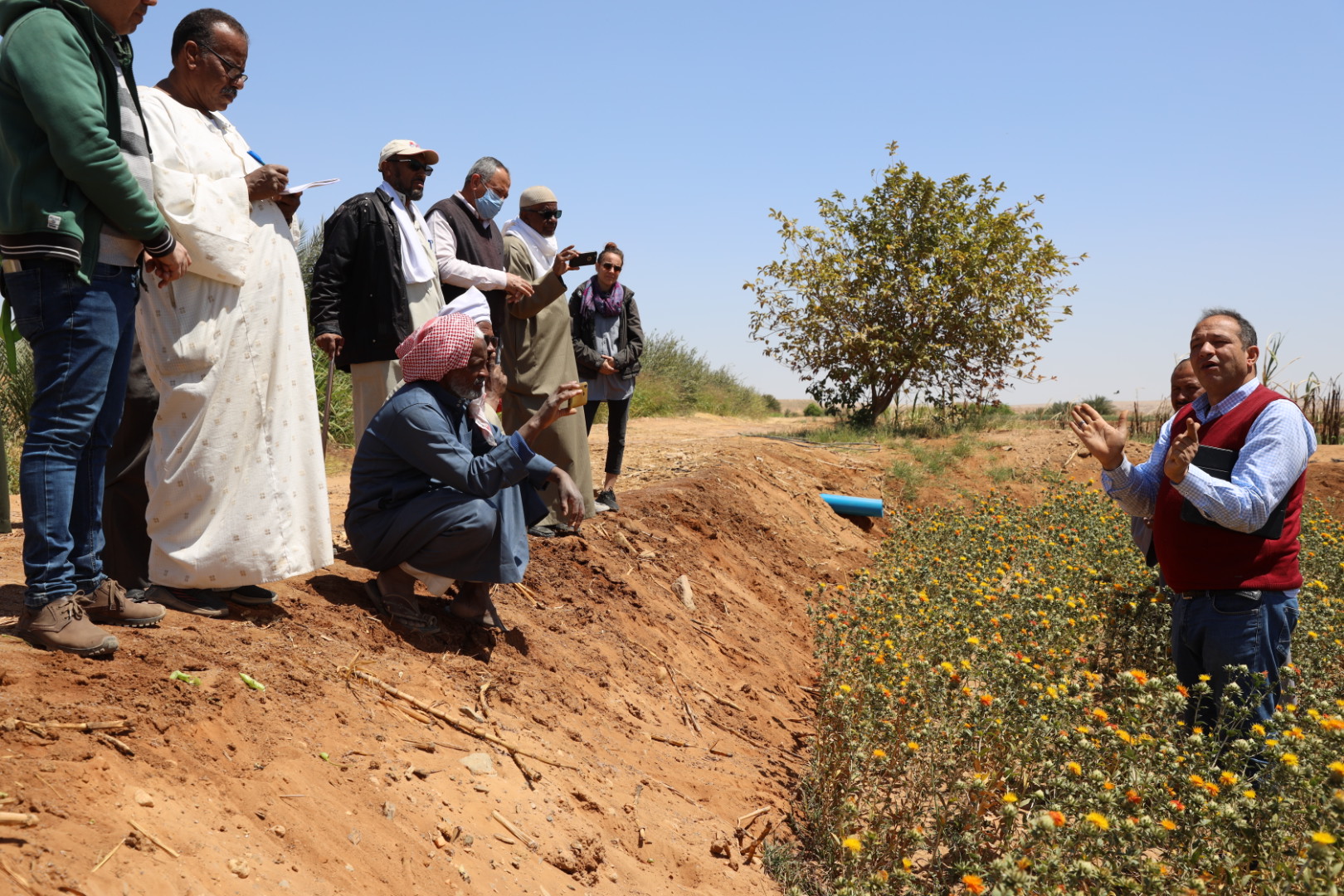EBDA in June 2022

Economy of Love has a new website!
By launching this new website of the EoL, the website visitors will be able to understand and learn more about the Economy of Love and learn more about its criterias, what are the standards based on it and what are the ethics of the Economy of Love. On the other hand, the web also explains how to register and join and how to obtain a certificate of economy of love. Otherwise, a more sustainable certificate has been launched, which is the Economy of Love carbon credits (EoL CC). This website explains how to calculate carbon credits, how to purchase them, and what are the conditions that must be met by farms to obtain these certificates. The best example of the EoL certification system is Sekem Wahat farm. The farm always meets all criteria, and it is now counting its carbon emissions and using the new advanced certification, Economy of Love carbon credits (EoL CC). Sekem registered for it, and now the farm is on track to count the amount of carbon sequestered, as are many other farmers, businesses, and projects.
EoL
As a member of the Economy of Love, you guarantee safety, transparency, commitment, and fair production and income throughout the supply and value chains. EoL constantly implements new innovative ideas in the Economy of Love Standard in order to best serve the farmer, people in the supply chain, and our customers. The new EoL carbon credits were recently implemented. EoL is able to assess carbon emissions and sequestration, as well as active carbon avoidance, on their licensee farms through collaboration with the Carbon Footprint Center and the use of the Cool Farm Tool. This net carbon can be valued. A tonne of carbon sequestered or avoided currently costs between 20 and 25 Euro. Farmers who are EoL certified are naturally providing a large number of trees, biodiversity, compost production, and renewable energy on their land, which they can now be compensated for. Learn more about the carbon scheme’s evolution, the transparent background of tracing our carbon projects, and the impact on biodiversity and people, visit the Economy of love website www.economyoflove.net
Cooperation of NCE and SEKEM for Preservation of Biodiversity in Wahat
EBDA, represented by Helmy Abouliesh, Angela Hofmann, Ahmed Ghannouchi, Lidia Sharmer and Ksenia Popova met with the Nature Conservation Egypt (NCE), an NGO that is committed to protect and conserve natural ecosystems in Egypt. A team of NCE was visiting the Sekem Wahat farm during the last month and was monitoring the biodiversity. During the meeting, NCE highlighted the uniqueness of the Wahat ecosystem adapted to harsh desert conditions, and the different animal and plant species in the area. Furthermore, it was agreed that conservation efforts should focus on maintaining species numbers and preserving natural areas, monitoring biodiversity, and addressing conventional agriculture expansion concerns. Eventually, both sides are looking forward to more cooperation in the future.
EBDA Attended the BFDI Members’ Assembly online
This year, the BFDI launched their members’ assembly as a hypered online meeting on 26th – 29th of June for all its members. The advantage to an online Members’ Assembly is that many people from our organizations (EBDA) could attend. This MA included a wide range of discussions, such as:
- Membership Development
- Future of Standards
- Supporting Development
- through Advisory, Research and Training
- Policy & Communication
and more interesting and beneficial topics. In regards, the EBDA created its annual country report this year as a video that shows the association’s achievements and services through it in a visionary way, check the link to see our video: https://youtu.be
Economy of Love Website Registry
The EoL team successfully included the whole farms of phase two of the EoL upscaling projects that accomplished reaching 588 farms with 2000 farmers which are now in the process of converting their lands into Biodynamic ones. Check the link to learn more: https://registry/
Monthly Increase in the EBDA Number of Farmers
EBDA successfully reached 588 farms including 1849 farmers with 10425 feddan as a total farm area in 2022. The next phase will be upscaling the number of farmers who convert from conventional to organic/biodynamic farming and reach 40000 farmers by 2025.

In 2023, EBDA is tracking the upscaling project monthly .As illustrated in the graph, this occurred in March, April, May and June. During this time, EBDA received 473 new farm applications which are responding to 2128 farmers and 12169 Fedan of farm area. The technical team is constantly approving and evaluating these apps.

